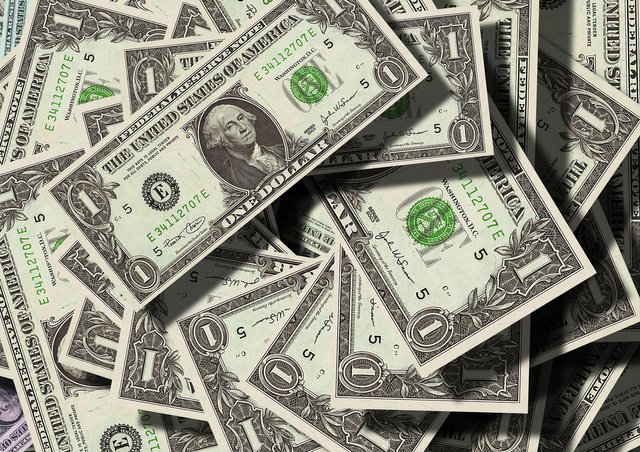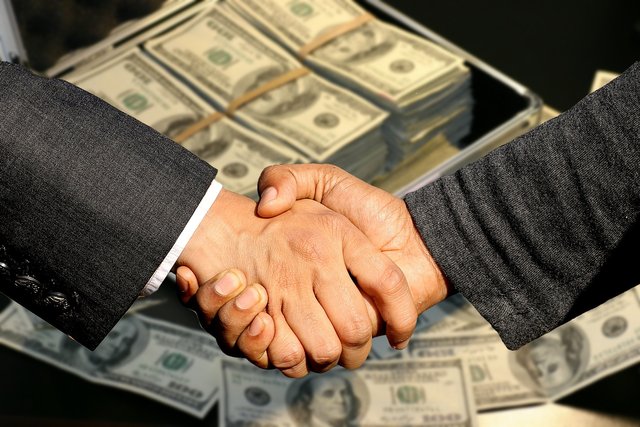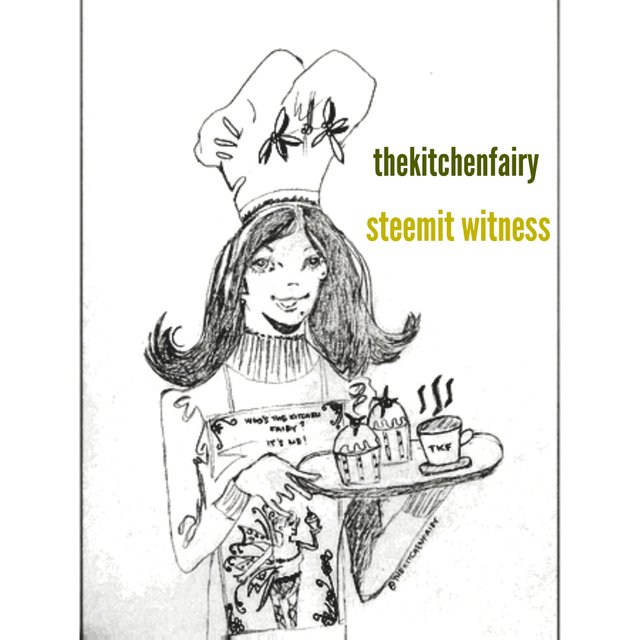MONEY #1: What is money
There is something we think about all the time, something we have a great desire for either consciously or subconsciously. We want it so much that, we work hard all day, sometimes, doing what we hate in an unfavorable environment or even risking our lives. We even work extra time just to have a little more of it.
We call this insatiable desire Money. We all want money, then a little more of it and a little more again. But we hardly ask ourselves, What is money? Who invented money? How did humans evolve from barter trade to the use of gold as money, then paper? German philosopher Martin Heidegger once said; "The things that are most difficult to think about are the things that are familiar to us".
What is money?

Money is simply a medium of exchange. Money is not a food you can eat, neither is it a house you can live in, nor a luxurious car you can drive or ride. Money is also not the person or thing that will bring you happiness. You simply want it because you can exchange it for the food you need, you can exchange it for your dream house and you can also exchange it for that car you so much admire. You also attract people and attention if you have lots of money and spend it lavishly. With enough money, you can also afford that vacation. Money is not exactly what we want, it’s just what we need to get what we want.
Not every medium of exchange is money. Besides, I can exchange anything to get what I want, Right? I can exchange my car for a house, a laptop for a smartphone, my ticket for jewelry. Is any item exchanged money? Probably, because money is defined by its functions.
Functions of money
Money is often defined in terms of its three functions. If a medium of exchange does not satisfy this three functions, it is not money. The functions are:
- Medium of exchange
- Unit of measure/account
- Store of value
1. Medium of exchange
This is the essential function of money. Money must be widely accepted as payment for goods and services among a community. Without money, all transactions would have to be conducted by barter, which involves direct exchange of one good or service for another.
The difficulty with a barter system is that in order to obtain a particular good or service from a supplier, one has to possess a good or service of equal value, which the supplier also desires. In other words, in a barter system, an exchange can take place only if there is a double coincidence of want between the two transacting parties.
The likelihood of a double coincidence of wants, however, is small and makes the exchange of goods and services rather difficult. Money eliminates the coincidence of want problem in barter trading (which will be explained further in the next article) by acting as a medium of exchange that is accepted by all parties regardless of whether they want each other’s good or service.
Another problem with barter system is time. The earliest job is farming and, farming produce are seasonal and perishable. If I have a product that is harvested during the raining season and it will perish before the dry season, I can’t exchange it for products that are harvested during the dry season and perish before the next rainy season.

2. Unit of measure/account
Money provides a common measure of the value of a good or service. It enables a supplier to determine how much of a good he supplies. It also lets the purchaser to determine how much he gets for his money.
For money to act as a common measure, it must have a common value. Simply, a dollar in your pocket or bag is equal to a dollar in your friend’s pocket. A thousand Euro in your account is equal to a thousand Euro in your neighbor’s account. An ounce of 24 karat gold is equal to an ounce of 24 karat gold. But, no two diamonds are alike.
3. Store of value
Money must be reliable to save, store and retrieve with the assurance that it will still retain its value after it is retrieved. If you were given an ice cream worth £2, you could enjoy it right now, but if you didn’t consume it, it would melt and that ‘value’ would disappear. But if you were given £2 instead, you could spend it anytime you like. This is an example of an extremely short-term store of value but a lot of times, money is saved for years. It might be for college fee, bad times or for inheritance.
As a store of value, money is not unique; many other stores of value exist, such as land, works of art, and house. Money may not even be the best store of value because it depreciates with inflation. However, money is more liquid than most other stores of value because as a medium of exchange, it is readily accepted everywhere. Money is also easy to transport as a store of value.
Key Characteristics of Money
- Durability i.e. it must last for a long period of time
- Portable i.e. easy to carry around, convenient, easy to use
- Divisible i.e. it can be broken down into smaller denominations or unit
- Hard to counterfeit - i.e. it can’t easily be faked or copied
- Interchangeable i.e. $1 is equal to $1, 0.1btc is equal to 0.1btc
- Must be generally accepted by a population
- Valuable – generally holds value over time
In the coming article, I'll discuss the ways transactions are made before there was a medium of exchange which are barter, gift and debt. Follow me so that you will be notified when I write the article.
I'll leave you with a quote from Michael Maloney:
Your true wealth is your time and freedom, money is just a tool for trading your time. It's a container to store your economic energy until you are ready to deploy it.
Image credit
Thanks for the clarity on what money is. It is pretty funny how we often become obsessed with money and miss out on what it really is that we desire. I think if people see money more clearly it takes that mystic away and folks can focus more on the things they really value.
Hi,
Monero is the cryptocurrency community’s response to Bitcoin’s privacy issues. Monero(https://guarda.com/monero-wallet) is a cryptocurrency that involves a unique approach to the sector. The key feature of this coin is secrecy.
Hi! I am a robot. I just upvoted you! I found similar content that readers might be interested in:
https://www.cliffsnotes.com/study-guides/economics/money-and-banking/functions-of-money
Say whaaaa...
I thought money was everything 🤣
Cheers,
